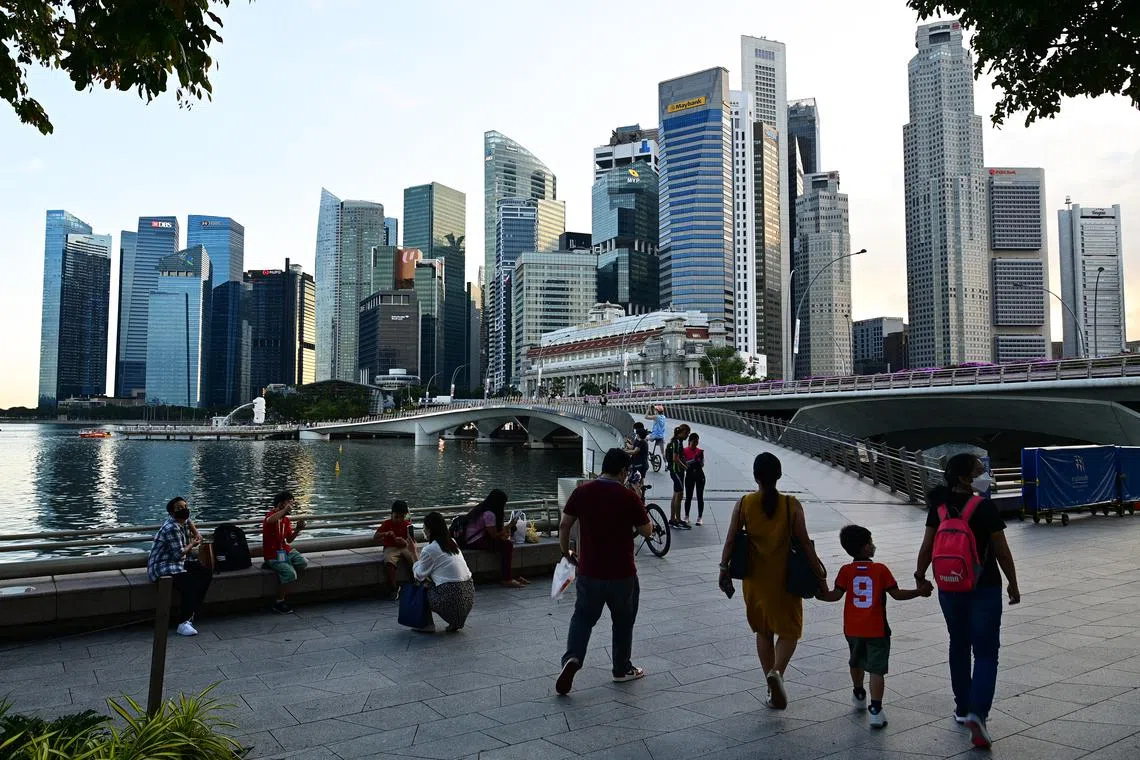Budget 2023: National Productivity Fund gets $4 billion top-up to attract multinational investments
Sign up now: Get ST's newsletters delivered to your inbox

The fund was established in 2010 to support a wide range of measures for businesses to improve productivity, and continue to educate and train workers.
PHOTO: ST FILE
SINGAPORE - Singapore will top up its National Productivity Fund (NPF) with $4 billion to redouble its efforts to attract high-quality investments from multinational enterprises.
The fund was established in 2010 to support a wide range of measures for businesses to improve productivity, and continue to educate and train workers.
Now, NPF’s scope will be expanded to include investment promotion, said Finance Minister Lawrence Wong on Tuesday.
“We will use the fund to anchor more quality investments here,” he said in his Budget speech, adding that NPF will support companies to build new capabilities, add greater value, and upskill workers.
“Ultimately, these efforts will lead to better paying jobs for Singaporeans,” he said.
Thanks to Singapore’s track record of a stable and trusted policy environment and access to global talent, multinational enterprises (MNEs) have flocked to the Republic for decades to invest in sectors including oil, finance, electronics and pharmaceuticals.
But that investment flow is now seen as being vulnerable to the geopolitical and economic contest between the United States and China – the world’s two largest economies that are also Singapore’s top trading partners.
Mr Wong said: “The geopolitical context has shifted greatly. Great power contestation has intensified, most notably between the US and China.”
MNEs that have developed their supply chains based on the most cost-efficient configurations are now reorganising to account for these geopolitical risks.
“More and more MNEs are looking to reshore, onshore, or near-shore – that is relocating factories and offices to places where they are less likely to get caught in geostrategic crossfires,” said Mr Wong.
He added that the US has banned the flow of high-end semiconductors to China,
“All this is setting off a dangerous dynamic towards greater economic nationalism and protectionism around the world. Governments are stumping out more aggressive support, in the form of tax breaks and subsidies, to anchor strategic industries.”
Another challenge comes from the Base Erosion and Profit Sharing initiative, also called BEPS 2.0 – an international scheme to prevent tax avoidance.
One measure to be expected under the BEPS 2.0 is the global minimum tax of 15 per cent. MNEs will face top-up taxes in any jurisdiction where they currently pay an effective rate of below 15 per cent.
Mr Wong said with BEPS on the horizon, Singapore will have less scope to use tax incentives to attract new investments.
“We will therefore have to work harder to enhance our overall productivity and workforce quality to stay competitive in this new environment,” he added.
Mr Wong said Singapore will focus on growth sectors where it can be highly competitive, such as finance, transportation and logistics, electronics, chemicals, and biomedical science.
“With more high-value activities and best-in-class facilities based here, we will be able to build new capabilities, develop key industries, and create good jobs for Singaporeans.”



